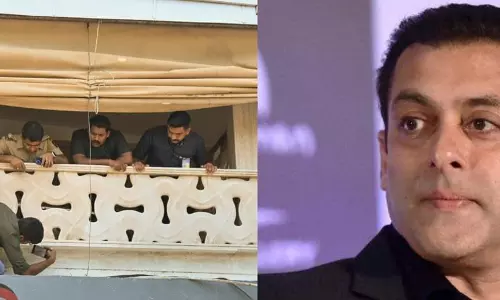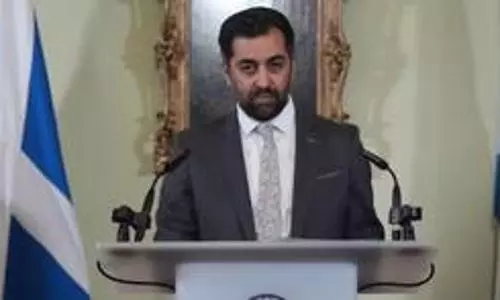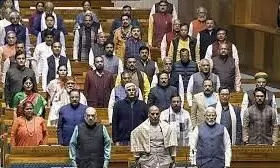
When 17th Lok Sabha prorogued marking a waning of democracy
text_fieldsThe term of the 17th Lok Sabha ended with the conclusion of the budget session of the Parliament. And the country is getting poised for the heat of general elections. In his closing speech, Prime Minister Narendra Modi singled out the Congress and not the opposition as a whole, for his attack. The probable reason for this shared by observers is that the party may not want to close the doors of future prospects of alliance with regional parties. But the bottomline of five years' functioning of the 17th Lok Sabha, as vouched by observers and figures alike, is that legislatures, the pillars of democracy, have been at their weakest during this term. Although the number of bills passed has increased, in factors like the manner in which the sub-committees scrutinised and presented the bills for discussion, the presence of the ministers, especially the Prime Minister, for debates do not give a good picture about parliament. What is more worrying is the actions taken against the opposition in a fascist manner when they raise issues and protest. An unprecedented 146 members were suspended and kept out of the House in a short period during the winter session of Parliament. It is only that the administration showed generosity to put on a graceful face by clearing, just before the concluding session, the 14 people whose cases were referred to the Privileges Committee. In some ways, Opposition parties cannot be totally absolved of the guilt in reduced number of effective sessions. For, nstead of walking out in protest on at least some issues, they could have looked for other ways to keep debates going. However, this is not the main reason for the decline in the quality of Parliament activities.
Also read: Oppn labels BJP's White Paper political agenda aimed at gaining electoral points
This time, the Parliament was adjourned on a Saturday, which was a deviation from the norm, to accommodate an extra day's session. And that was for passing a resolution recording the House's appreciation for the Prana Pratishta in the Ayodhya temple and showering praise on the Prime Minister. Thus the house went on record that on January 22, the entire country was filled with joy and enthusiasm, and the Prime Minister was felicitated for his crucial role in uniting the country. The 17th Lok Sabha was concluded at a worrisome juncture that would leave an entire democratic order in the hands of a prime minister. Only the Left MPs took a firm stand against this communal agenda and boycotted it. Although other opposition parties also abstained, the aspect of secular protest was missing in them. Another factor that stood out was the absence of a deputy speaker throughout the house's term. Choosing the Deputy Speaker of the Lok Sabha from the opposition was a precedent symbolic of respect for opposition and room for diversity. However, in the 17th Lok Sabha, the ruling party chose to keep the post vacant. The outgoing Lok Sabha also witnessed the rare sight of the Prime Minister himself taking over the function of the inauguration of the new Parliament building and the ceremony of moving the house to it.
Also read: Amit Shah reiterates implementation of CAA before Lok Sabha elections
Although the new Parliament House provides more space and facilities, the average number of sitting days per year fell to 55. If the number of sittings in the first Lok Sabha during Nehru's prime ministership was 135 days, the responsibility of bringing it to this low a figure of 55 largely rests with the current regime's policies. From June 2019 to February 2024, as a recent PRS Legislative Research Institute points out, 11 of the 15 sessions of this Lok Sabha were adjourned before schedule. The record is also grim for debates before bills are passed. While 58% of the bills were passed within two weeks, two crucial bills, the Women's Reservation Bill and the bills revoking special rights of Jammu and Kashmir, were passed within two days. Another 35% of bills were passed within a matter of an hour. Only 15% of the bills were referred to the Standing Committee before the House discussed them. This is less than the previous three Lok Sabhas. Due to the low number of sessions held, it also affected consideration of private bills: out of 729 private bills introduced in the Lok Sabha and 705 in the Rajya Sabha, only two and 14 were discussed respectively.
Also read: 2 Bills to modify lists of SCs, STs in J&K passed in Lok Sabha
The balance sheet of the 17th Lok Sabha is of a weakening of parliament and of fast-baked bills passed one after another by sidelining the opposition, all at the hands of the sangh parivar regime. That is how totalitarian regimes in the past which destroyed democracy by using its own tools, sowed the seeds of dark phases history. Whether it should be allowed to happen in India is up to the citizens exercising their right to consent.
Also read: Gujarat govt transfers 50 IAS officers ahead of Lok Sabha polls


















